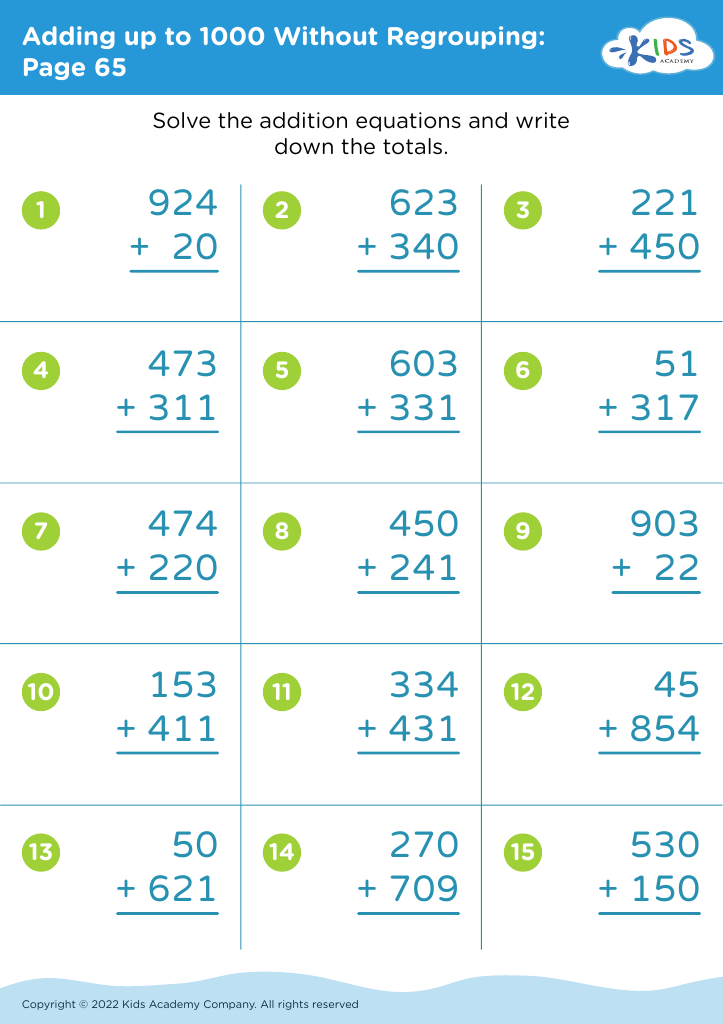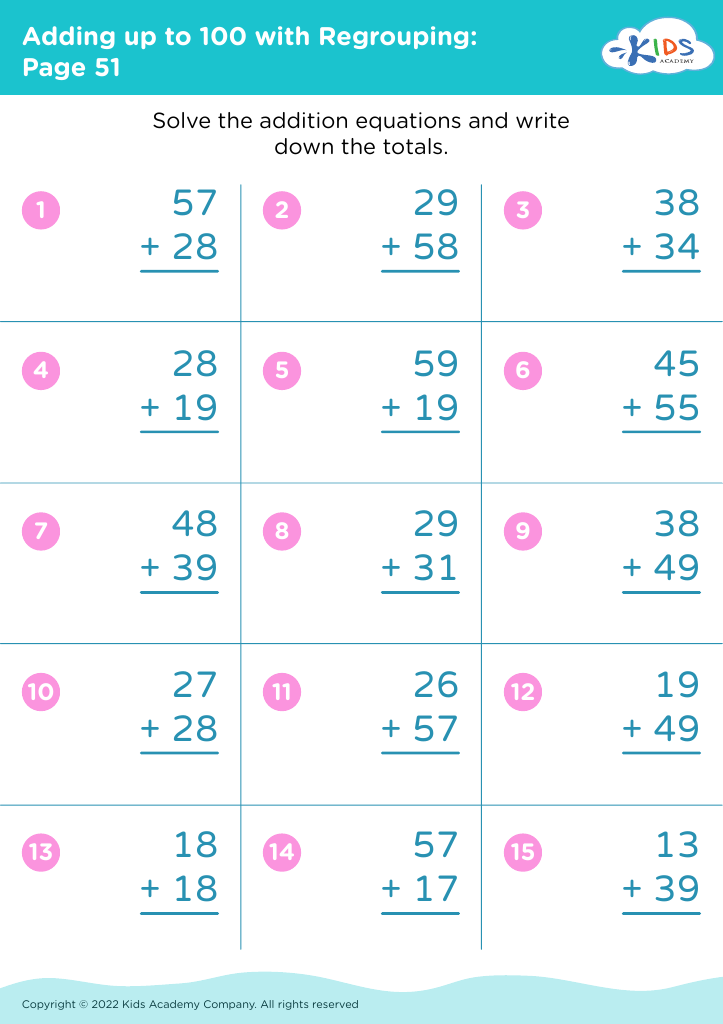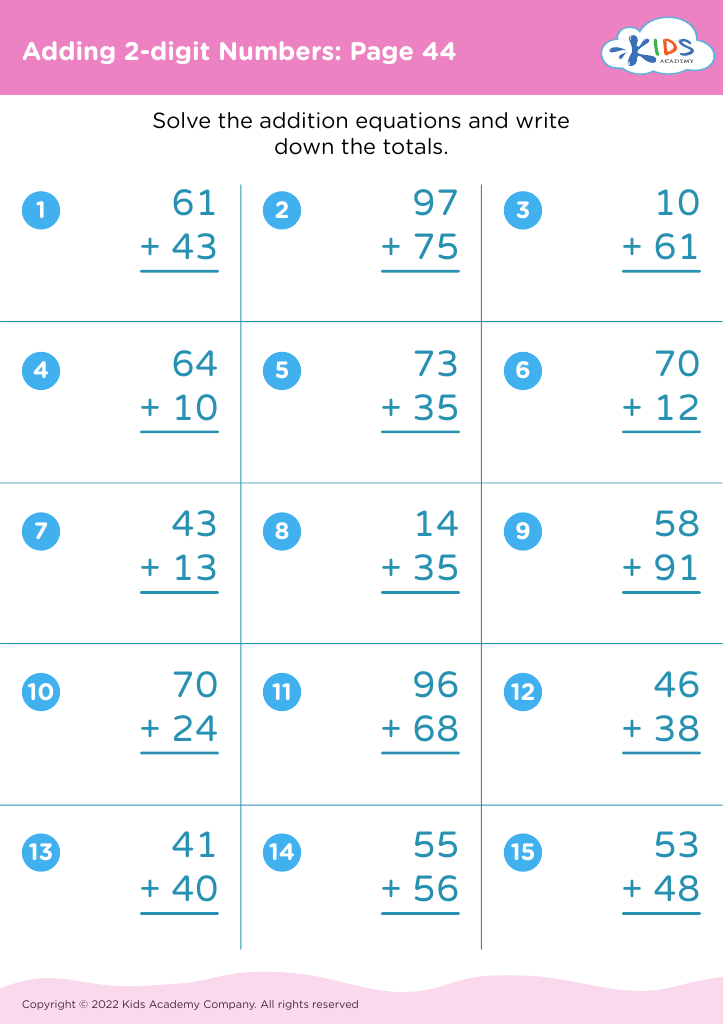Develop analytical thinking Math Worksheets for Ages 5-8
3 filtered results
-
From - To
Enhance your child's cognitive skills with our specially designed math worksheets for ages 5-8. At Kids Academy, we focus on developing analytical thinking through engaging and educational activities. Our worksheets cover various math concepts, from simple addition and subtraction to patterns and problem-solving, tailored to stimulate young minds. With visually appealing designs and step-by-step instructions, these worksheets make learning fun and effective. Help your child build a strong mathematical foundation and boost their critical thinking skills with our carefully crafted resources. Visit us today to explore our extensive collection and start your child's analytical thinking journey!
Developing analytical thinking in math for children ages 5-8 is crucial for several reasons. First, it helps lay a strong foundation for future learning. At this formative age, children's brains are exceptionally receptive, and early experiences with analytical thinking can enhance their problem-solving skills. Math isn’t just about numbers; it's about patterns, logical reasoning, and understanding concepts, which are essential skills for a variety of life situations and future academic disciplines.
Second, building analytical thinking can foster a love for learning in young students. When children understand the "why" and "how" behind math problems, they become more engaged and motivated. This curiosity-driven learning helps them see math not as a set of arbitrary rules, but as a solvable puzzle, making learning more fun and interesting.
Third, it promotes confidence. Proficiency in analytical thinking equips children with the ability to tackle challenges persistently without feeling overwhelmed. Starting this journey early gives them a booster for facing increasingly complex math in higher grades without intimidation.
Lastly, it aids in the overall development of cognitive skills such as memory, attention, and critical thinking. These skills are vital beyond the classroom, enabling children to make informed decisions and approach everyday problems efficiently. Early development of analytical thinking in math is an investment in a child's educational and personal growth.























